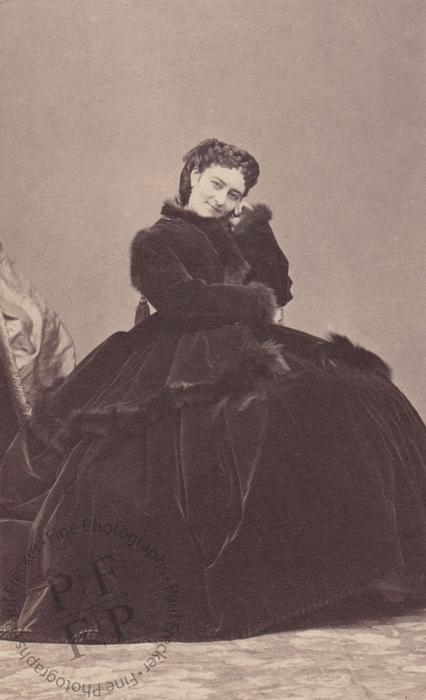Bernadine Hamakers
(1836-1912)
‘Bernadine Hamakers […] was the daughter of a soldier of the First Empire. She was a prima donna probably more representative of the Second Empire than Alboni, Patti, Stoss, Frezzolini and others who trod its operatic boards, for the prima donna of the Second Empire was judged quite as much by her personal attractions as by her voice. Mlle Hamakers had been “discovered” by de Morny, a judge of feminine charm as well as of music, and when she first made her bow to an opera audience, “with her lovely blond hair, her white teeth, harmoniously veiled by the rosy shade of her lips,” she “looked like a clavier begging to be played.” She never sang her famous “page” roles without accompanying showers of flowers. And she had admirers innumerable, from de Morny, who made it a point to see that her carriage horses – she drove her own victoria in the Bois de Boulogne – were finer than the Emperor’s, to old Rossini, at whose home she sang arias from the “Barber of Seville” to the accompaniment of the monophone – an arrangement of musical glasses filled with water, whose crystal sonorities blended well with her sweet but somewhat metallic voice.
‘She held the favour of the Paris public until her death, and one of her “stunts,” as Gilda in “Rigoletto,” was to trill, watch in hand, for a full minute or more. The Emperor, remembering that she was the daughter of a veteran of Austerlitz, sent for her after one of her performances, and when she appeared in his box presented her with a parure of emeralds.’
[From 'Music Mirrors of the Second Empire' by Frederick H. Martens, an article that appeared in the Musical Quarterly (Vol.16, No.3) in July 1930.

